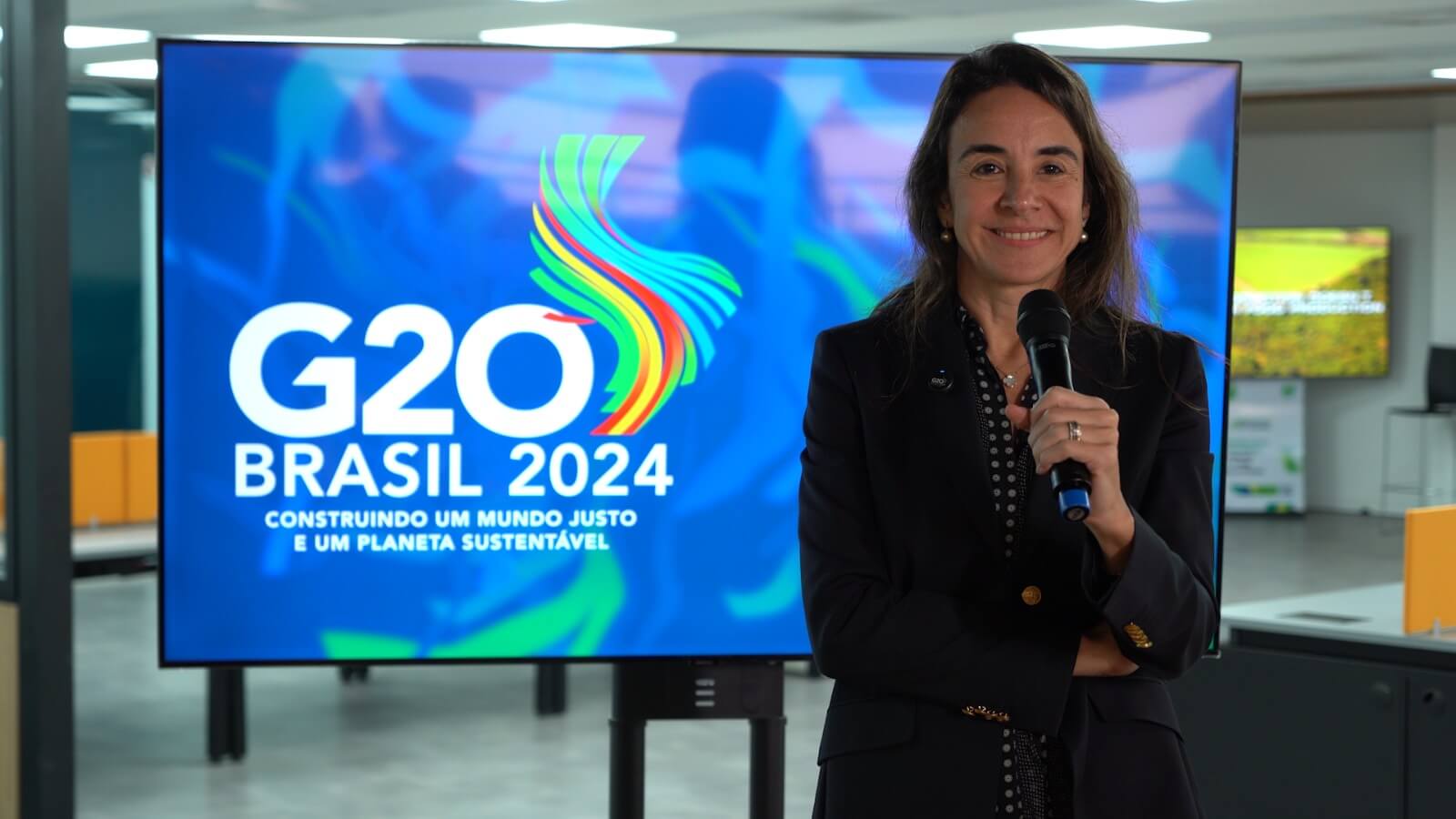Rosito: funding for sustainable development needs to increase from billions to trillions
In a virtual meeting, G20 vice-ministers of Finance and vice-presidents of central banks defend financing strategies to face the climate emergency. Led by Tatiana Rosito, coordinator of the Finance Track, participants discussed how to increase financing towards sustainable development; international cooperation to tax the super-rich; and the reform of multilateral banks. The next discussion at the IMF, in Washington, promises to advance further in this direction.

Strategies for mobilizing public and private resources to face the climate emergency were key points at the meeting of G20 vice-ministers of Finance and vice-presidents of central banks which took place this week, in Brasília, via video conference. Tatiana Rosito, coordinator of the Finance Track, explained that the topic is central to a financial architecture in which the financing for sustainable development “increases from billions to trillions” of dollars.
The ambassador detailed that another priority of the Brazilian G20 presidency that can contribute to mobilizing funds towards the ecological transition is the reform of multilateral development banks (MDBs)—something that is also at the center of discussions on finance and sustainable development of representatives.
Furthermore, Rosito stressed that the issue of international cooperation to tax the super-rich was well received by member countries. The ambassador highlighted that the proposal has significant support from civil society, academia and is on the agendas of governments which have committed to supporting more progressive taxation measures that include taxes on extreme wealth.
“It is an ongoing agenda that directly connects to the expanded needs for financial sources to combat poverty or the climate crisis. It is perceived and received very well, since it combines the issue of tax progressivity and social justice on a global scale. We are pleased with the reception it has been receiving and are working to create a statement on this topic,” she said.
Meeting with the IMF
On April 18 and 19, the third meeting of G20 Finance Ministers and Central Bank Governors will be held in Washington, USA, as part of the annual schedule of the International Monetary Fund (IMF) and World Bank Spring Meetings. With two priority topics as the agenda, the meetings “crown a second circle of meetings of working groups, initiatives and task forces that were created by the Brazilian presidency,” highlighted Rosito.
“The first meeting will focus on the theme of sustainable finance, of reimagining climate finance to meet the ambitions of combating climate change alongside development challenges. The second focuses on an agenda on international financial architecture for the 21st century in two aspects: the reform and strengthening of multilateral banks,” she said.
According to Rosito, specifically, the Brazilian presidency expects representatives to also discuss the construction of a roadmap for MDBs to become larger and more effective, as well as the resilience of financial flows for financing developing economies.